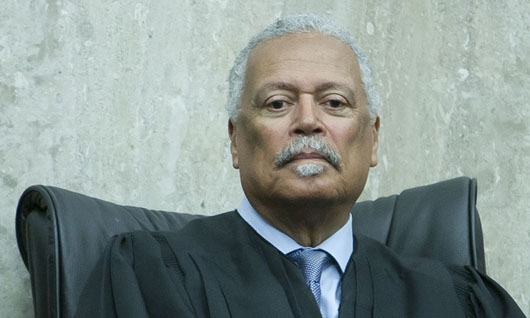by WorldTribune Staff, February 18, 2018
The judge now presiding over the case against former national security adviser Mike Flynn has made it clear that he, and not special counsel Robert Mueller, “would be the judge of what evidence should be produced,” a longtime Washington journalists said.
On Dec. 12, only a few days after replacing Judge Rudolph Contreras on the Flynn case, Judge Emmet Sullivan, “acting on his own,” ordered Mueller’s office “to produce to [Flynn] in a timely manner – including during plea negotiations – any evidence in its possession that is favorable to defendant and material either to defendant’s guilt or punishment,” Byron York wrote on Feb. 15 for the Washington Examiner.

Sullivan also ordered Mueller “to produce all discoverable evidence in a readily usable form,” declaring that “if the government has identified any information which is favorable to the defendant but which the government believes not to be material, the government shall submit such information to the Court for in camera review.”
York noted that “Sullivan is well known in legal circles for having been the judge in the case of Ted Stevens, the Republican senator from Alaska who was prosecuted for corruption by the George W. Bush Justice Department.”
Stevens’ 2008 convictions was blamed for his loss in a bid for re-election the next month.
“But it later came to light that the Justice Department had improperly withheld exculpatory evidence. In April 2009, Eric Holder, the Obama attorney general who inherited the mess, dropped the case”, York wrote
Sullivan has been a judge for the United States District Court for the District of Columbia since being appointed by President Bill Clinton in 1994. He was first appointed judge of the Superior Court of the District of Columbia by President Ronald Reagan in 1984.
“What Flynn watchers are noting today is that when all that happened back in 2009, Sullivan ripped into the Stevens prosecutors with an anger rarely seen on the bench. Sullivan was furious that the federal government had repeatedly withheld evidence from the Stevens defense and has been known ever since as a judge who is a stickler for making sure defendants are allowed access to all the evidence they are entitled to,” York wrote.
Flynn has pleaded guilty to one count of lying to the FBI in the Trump-Russia investigation and, as part of that plea, agreed to “forgo the right to any further discovery or disclosures of information not already provided at the time of the entry of [Flynn’s] guilty plea.”
Writing for National Review, former federal prosecutor Andrew McCarthy noted: “It certainly appears that Sullivan’s order supersedes the plea agreement and imposes on the special counsel the obligation to reveal any and all evidence suggesting that Flynn is innocent of the charge to which he has admitted guilt.”
On Jan. 31, the two sides in the case agreed to delay sentencing for Flynn until at least May.
Last week, York noted that “prosecutors and the defense submitted to Sullivan a proposed order limiting the use of any new evidence produced by the government. The evidence can be used by Flynn’s defense ‘solely in connection with the defense of this case, and for no other purpose, and in connection with no other proceeding.’ The proposed order, awaiting Sullivan’s approval, also set out rules for handling ‘sensitive’ materials.”
The latest filings “indicate both sides are taking Sullivan’s order seriously, which is certainly a good idea, given Sullivan’s history,” York wrote. “But is there actually not-yet-produced evidence that might help Flynn? If so, would it have any effect on the case in which Flynn has already pleaded guilty? And would it have any effect on the larger Trump-Russia investigation? There are no answers right now, but United States v. Michael Flynn remains a case to watch.”
Subscribe to Geostrategy-Direct __________ Support Free Press Foundation
